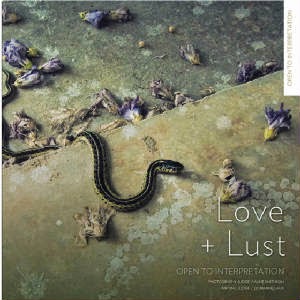LOVE + LUST, and Other Profound Desires
Once, I listened to a man tell of how he bandaged a
topless dancer’s bleeding finger after she cut it while stroking the edge of a
mirror during a performance. Listening,
I felt sick to my stomach. I had that
same feeling once when walking down the sidewalk in Las Vegas, trying to avoid
stepping on the dozens of tossed-aside postcards that littered the streets, lascivious
photographs of young women staring up at me. For a good time call.
 I thought of Jennie Field’s novel The Age of Desire, about the author Edith Wharton and her scandalous, 1908 love affair with a dashing young journalist. Twelve years later, in 1920, Wharton would
write her Pulitzer prize-winning novel The Age of Innocence. “Is it—in this
world—vulgar to ask for more?” asked Katherine Mansfield after reading The Age of Innocence. “To entreat a
little wildness, a dark place or two in the soul?”
I thought of Jennie Field’s novel The Age of Desire, about the author Edith Wharton and her scandalous, 1908 love affair with a dashing young journalist. Twelve years later, in 1920, Wharton would
write her Pulitzer prize-winning novel The Age of Innocence. “Is it—in this
world—vulgar to ask for more?” asked Katherine Mansfield after reading The Age of Innocence. “To entreat a
little wildness, a dark place or two in the soul?”
I didn't want to walk on their faces. She’s someone’s daughter, I thought. Someone’s niece. Someone’s mother. I found a restaurant
with an outdoor bar shaded by palm trees, green ferns and flowers. I sat on a stool and ordered a ginger ale. The
land beneath the city felt dead, suffocated by cement, devoid of spirit, even
as fountains sprayed a river of water a hundred feet into the desert air and
glittering neon lights dwarfed the sun. I
took deep breaths and focused my attention on two birds flittering among the
branches.
Later, I wrote a poem about the young topless dancer, and
her bleeding finger, and the man who bandaged it. When OPEN TO INTERPRETATION sent out a call for submissions to writers and
photographers for their upcoming issue, LOVE+LUST, I sent in the poem.*
Editor Claire O’Neill writes in the book’s Introduction, “More
than 2,500 photographs were submitted. Of the 31 images chosen, only one is
devoid of a person. Why?” she asks us. “Maybe because love and lust relate to
our very core as humans.” She goes on to
quote Paulo Coelho: “Profound desire, true desire is the desire to be close to
someone.”
 I thought of Jennie Field’s novel The Age of Desire, about the author Edith Wharton and her scandalous, 1908 love affair with a dashing young journalist. Twelve years later, in 1920, Wharton would
write her Pulitzer prize-winning novel The Age of Innocence. “Is it—in this
world—vulgar to ask for more?” asked Katherine Mansfield after reading The Age of Innocence. “To entreat a
little wildness, a dark place or two in the soul?”
I thought of Jennie Field’s novel The Age of Desire, about the author Edith Wharton and her scandalous, 1908 love affair with a dashing young journalist. Twelve years later, in 1920, Wharton would
write her Pulitzer prize-winning novel The Age of Innocence. “Is it—in this
world—vulgar to ask for more?” asked Katherine Mansfield after reading The Age of Innocence. “To entreat a
little wildness, a dark place or two in the soul?”
When my contributor’s copy of LOVE+LUST arrived in the
mail a few weeks ago, I shied away from browsing through the beautifully
designed book. Uneasy, I glanced only at my poem and the photo it had been
paired with before closing the cover—a stripper in a glass booth. But last night, I took the book to bed with
me and began reading. Across from each
of the photographs, presented individually on the left, were two companion poems
on the facing page. I paused when I got
to the cover photo of the snake, and these opening lines by poet Melanie Richards: Her
version of the story/remains untold: forked/tongue whispering to her/from the
branches….
And so it is that we are still trying to tell our version
of the story. Let us never stop. Let us seek the wildness in our souls, in our human
cores, but let us also stoop to pick up
the photos of the discarded women. Let us reach out to staunch the bleeding, to strive for closeness of the most profound and yes, most godly nature.
*NOTE: Wharton’s
Pulitzer prize-winning novel The Age of Innocence was recently listed in
The Guardian/The Observer as #45 in a list of the 100 Best Novels. My sincere thanks to Carol Muske-Dukes for her poem, "To The Muse: New Year's Eve, 1990," which inspired my poem, "For Carol Muske's Light-Eyed Drunken Girl."

%5B1%5D.JPG)




Comments
I experience this wound in our culture as a bleeding too, feels like a hemorrhage most of the time to me...nature heals it some, but I feel like there are so many reminders. Advertisements on tv lately feel like they are ramping up again in this area...and I have young boys, a teenage girl...and we don't watch much, tv but when we do, there it is. I want more for all of us, no matter our age--sensuality shouldn't have to involve such wounding.